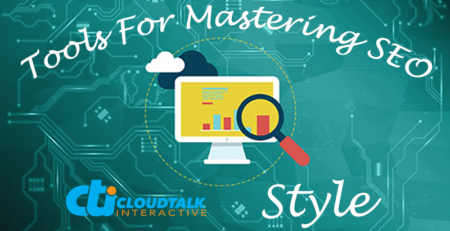Using WordPress as your CMS
WordPress is currently the most popular Content Management System used on the Web, almost a quarter of the entire web is powered by WordPress. A study conducted by the SEO research firm Lipperhey indicates that of the websites where a CMS could be identified more than 68% were using WordPress. The plugins that WordPress provides are used by more than 37 million websites and are a key way that WordPress can be used to optimize your web pages. It may be tempting to think of these plugins as something that is simply added to your already existing site, but the truth is that these plugins can solve some major issues you may be facing, things like sitemap, mass editing, and keeping your content compatible with any changes you may make to your web themes. The flexibility of these SEO plugins can make WordPress a viable CMS for even highly sophisticated websites.
At Cloud Talk USA, we can use WordPress to create customized post types and naming conventions that will help your website look highly organized and professional. One fundamental issue to understand about WordPress is the difference between posts and pages.
What is a Post?
Posts refer to highly dynamic sections of your website, ones that are constantly changing and evolving. A news feed or list of events would be an example of this type document.
What is a Page?
A page, on the other hand, would tend to be more static. For example, it might include bio’s of your company executives, information about your products, or your corporate mission statement. These things will need to be updated from time to time, but they don’t require the constant updating of a post.
How They Work Together
The average customer can probably just use these two post types, but for those who want to offer many different types of content, there are custom options available.
As a general rule website customization’s should only be used to simplify, never to add unneeded complexity, and that is why simplistic design is key. It is possible to create some very complex functionality by using customized post types. One example of this would be a website that featured daily blogs but also needed to be optimized for selling merchandise. Customized posting would allow you to keep an archive of your past blogs while also making it easy for your customers to look at different types of merchandise. These product pages could also add tools like “zoom in or zoom out” so that you can examine the merchandise in more detail. One caveat, these types of customizations are not supported by most mobile apps. Therefore, it is important to consider the experience of both mobile and desktop users when implementing these types of optimizations.
Benefits and Uses of Custom Taxonomies
Another type of customization that can be added involves the use of custom taxonomies. A taxonomy is simply a way of classifying different types of information and grouping like things together. In terms of a CMS, there are two basic types of taxonomy: Categories and tags. A category arranges information in a hierarchical manner. For example, you might have a general category on your website of “science news,” underneath this broad category there would be sub-categories like earth science, astronomy, biology, etc. These sub-categories could then be further subdivided into even smaller parts to the degree that the customer desires. Tags are more general than categories and function in much the way the same way a keyword would. They attach to relevant content and help you find what you are looking for. A tag on “synthetic biology” would bring up relevant articles on that topic, while one about Margaret Thatcher would bring up articles pertinent to the former British Prime Minister.
Custom taxonomies can be used for a variety of purposes; perhaps you want to create a database on different types of musical instruments for example. The database would let you look at the kind of instrument see when it was invented, how it is used, some famous people who played it, and so on without all that extra data cluttering up your website. With customization, the sky really is the limit, just remember to keep your end user’s experience in mind! Let Cloud Talk USA create the ideal experience for your customers with WordPress.













